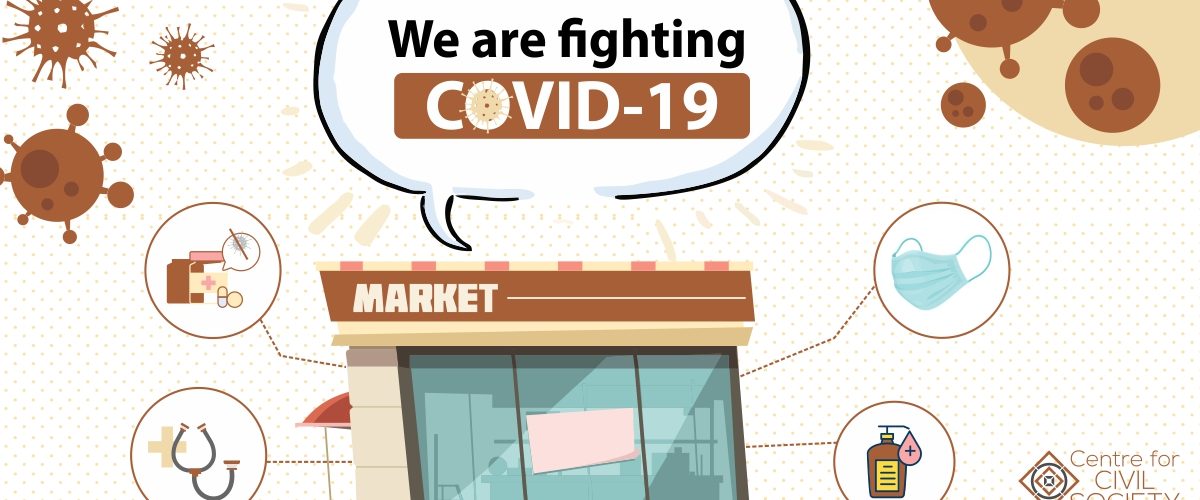The number of people infected by COVID19 in India has crossed 500. Following the Janata Curfew on 22nd March, 75 cities in India are on total lockdown, allowing only provisioning of essential goods and services. People are hoping that the government will take enough steps to protect us all from this pandemic. However, markets are leading a significant part of the fight against COVID-19.
Most of us are flooding the grocery stores trying to stock up on essential items. The masks, the latex gloves, sanitizers, food items and even the equipment being used to treat the ill in hospitals – all of these are provided by the markets without any decrees or orders from the government to do so. Our local grocery stores don’t get any order from the government to get more bread and eggs, but they do that because they know making these essential things available will make them more profit. The point here is that the markets provide what people want, both in times of crisis and during normal times.
Just a few days after the coronavirus pandemic was declared, private institutions took measures to ease the fight against COVID19. Ola, Uber suspended their shared rides temporarily in an attempt to encourage social distancing. Fast-moving consumer goods companies like Hindustan Unilever, Godrej, and Patanjali stated that they are helping fight the Covid-19 outbreak by reducing soap prices and ramping up production. Two Bengaluru-based biotech companies, MolBio and Xcyton, are offering to create testing kits for cheaper, which will benefit both the government and private labs. This will also expand the scope of diagnosis and ensure that India is ready to face the crisis with better technology and equipment. Indian Pharmaceutical giant Cipla voluntarily came forward to manufacture three promising chemical compounds with anti-viral properties to treat COVID-19.
The interesting thing here is that none of these institutions was forced by the government to reduce prices, innovate for testing kits or suspend their services. They voluntarily made these decisions. Of course, for these firms, there are clear incentives and profit-making opportunities. However, all their efforts, even if guided in search of profits, make us more resilient as a society. This is the market at work, tirelessly coordinating the efforts of millions of people and providing us with what we need.
Imagine if you were only allowed to buy goods from government-operated ration shops in this trying time. You would first have to find out how far this shop is from your house, when is it open, stand in long queues for hours and purchase only the standard, government-quality, goods. Would that be better?
The markets are more durable than ever, and there hasn’t been a better time to witness the same in action. As Jeffrey A. Tucker, the Editorial Director of the American Institute for Economic Research puts it – “The truth is that the market loves you right now, more in the midst of a disease panic than ever before…When it’s the difference between health and sickness, life and death, the government is the last institution you want to trust.”

About Author Swati Singh
Swati Singh is an Advertising Graduate from Symbiosis Centre of Media and Communication. Hailing from the city of Mumbai, she has a keen interest in public policy and is driven to work towards making this world a better place; one that functions on logic more than tradition. When she’s not busy strategising social media plans, she can be spotted exploring her interest in music and digital art.
this article originally published at spontaneousorder.in






